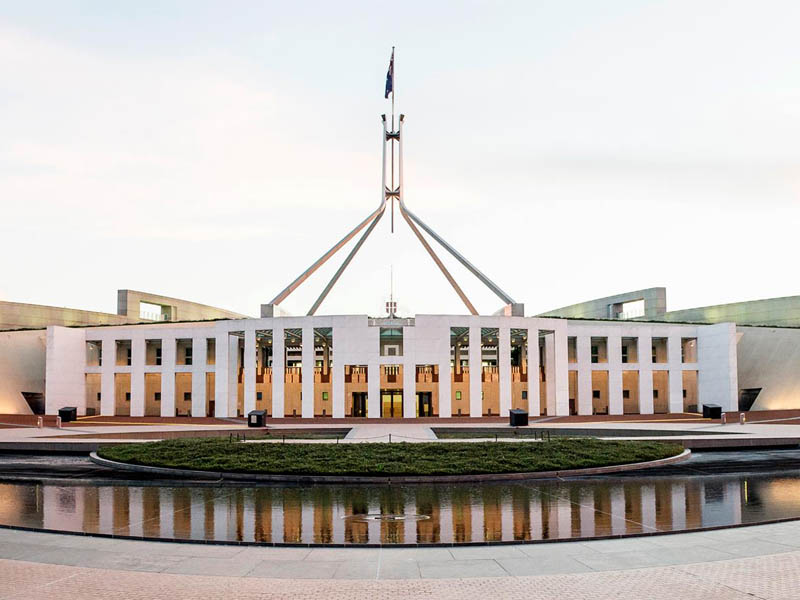The government was clearly “not listening” to the concerns surrounding the Consumer Data Right after it rejected an extension to an inquiry into the new scheme, shadow digital economy minister Ed Husic said.
The senate committee inquiry into the Consumer Data Right (CDR), which lays the groundwork for open banking and data access schemes across other sectors, will now go for just one month, with only two weeks for stakeholders to make submissions.
Treasury Josh Frydenberg on Wednesday evening introduced the Consumer Data Right bill to the lower house, dubbing it a “game-changer” for consumers and small businesses.

The legislation was originally meant to be entered into Parliament late last year, and the Opposition had agreed to immediately refer it to the Economics Legislation Committee for inquiry, to report back by 18 March.
But the government failed to introduce the bill during the farcical last sitting week of 2018.
The government introduced the legislation to the House of Representatives on Thursday, and it was referred to the committee on the same day, with a reporting deadline remaining on 18 March.
The deadline for submissions is 28 February, leaving just two weeks for stakeholders to make their voices heard, and less than a month for the committee to investigate the bill and the various concerns surrounding it.
Mr Husic said this isn’t good enough given the concern surrounding the bill.
“The government has managed to do something I didn’t think we’d see: they’ve united industry and consumers together in their concern about their plans for the CDR,” Mr Husic told InnovationAus.com.
“A lot of people have been telling me, and what we’ve seen through the submissions, that the government is not listening to the concerns of stakeholders,” he said.
“This is a massive reform, and a lot of people understand the need for the reform, and we want to work with the government on the reform. But they seem hell-bent on pushing it through the way they want rather than the way it would best work.”
The Opposition moved an amendment to extend this inquiry to 30 April to allow for more time to investigate some stakeholder concerns about the new powers. But this was voted down by government senators.
“The reason we went to senate inquiry, in spite of the fact that consultations had gone out on three separate occasions, was a reflection of the concerns raised with us about the fact that the government hasn’t listened,” Mr Husic said.
“Something as big as releasing all banking transaction data of all Australians, you’d think you’d want to get that system pressure-tested as much as possible.”
“I see it as the government wanting to get the benefit of an announcement rather than the benefit of a sturdy system, and they’re racing it through senate inquiry.”
The senate committee is investigating “significant stakeholder concerns” about the bill, including data access, small business cyber capabilities, consumer consent and potential data-related fees.
Mr Frydenberg has said that the CDR was a “game-changer” which would create competition and incentives for Australian entrepreneurs to build new products and services across the economy by enabling consumers to better harness their data.
“The consumer data right is a fundamental structural reform that will drive competition and improve the flow of information around the Australian economy,” Mr Frydenberg said.
“The right will incentivise Australian entrepreneurs to develop new products and applications that reach more consumers and are better tailored to their needs.”
It will be first applied to the banking sector, but the launch of open banking was quietly delayed by eight months at the end of last year.
While it was originally meant to launch in July, a “pilot program” will instead begin then, in order to test the “performance, reliability and security of the open banking system”.
By February 2020, product and consumer data for mortgage accounts will be made available and the proper scheme will kick off.
Some of the concerns surrounding the CDR centre on privacy, security and awareness, Mr Husic said.
“There are concerns around privacy, and the way the privacy impact assessment has been managed by Treasury not the OAIC, concerns around derived data and recognition of financial IP, and concerns about potential pricing and charging for data,” he said.
“And it’s about whether the government will get its act together on building awareness about the scheme, given that the UK experience is being mirrored in Australia.
“They rush to announce it, rush to introduce it, but then there’s a glacial pace of take-up by general consumers.”
Do you know more? Contact James Riley via Email.

